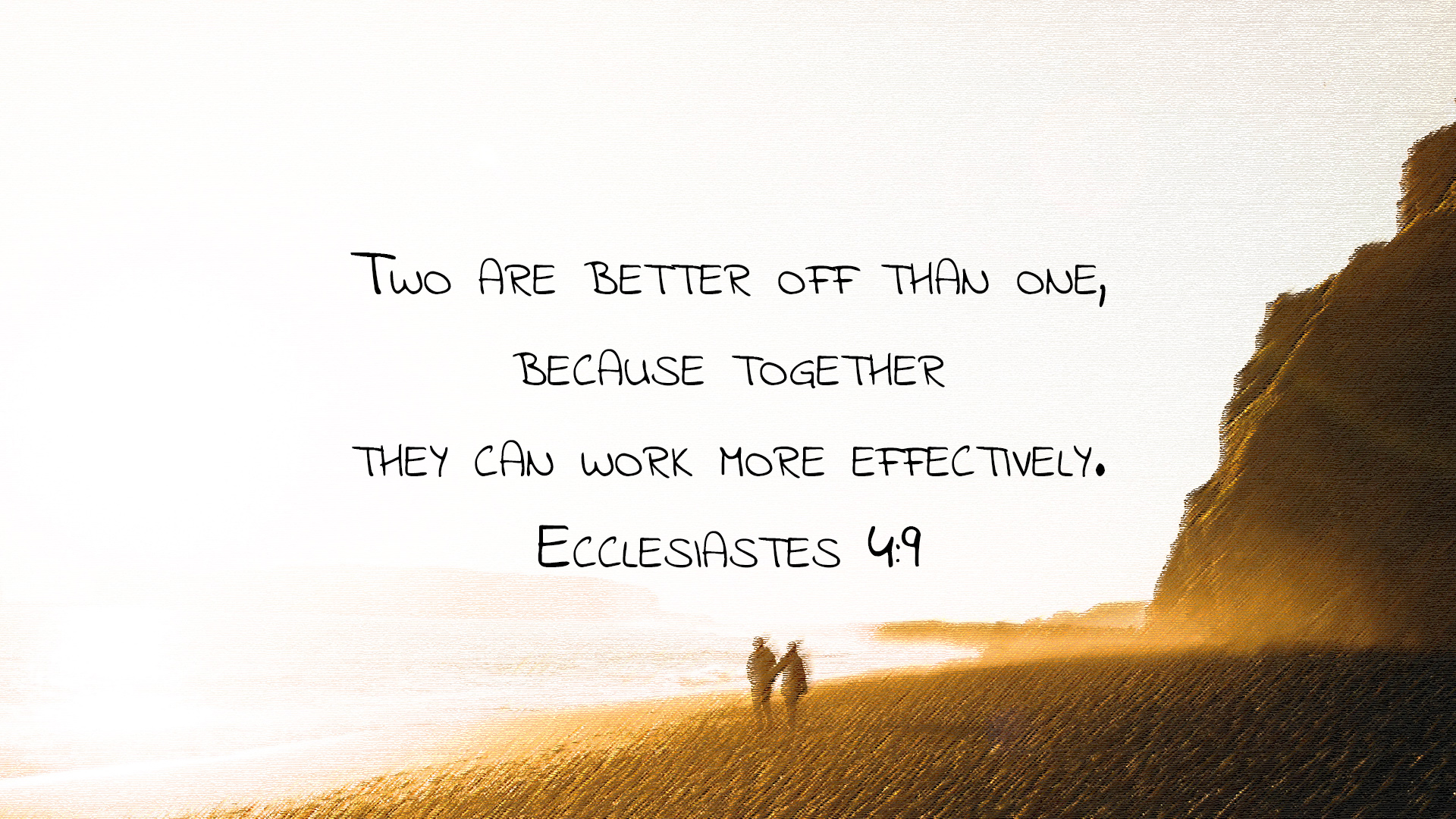The Futility of Selfish Ambition
Ecclesiastes 4:
Ecclesiastes 4 highlights the emptiness of selfish ambition and the importance of companionship in life's journey. How does the gospel call us to a life of community and selflessness over individual gain?
This Bible study explores the profound themes found in Ecclesiastes, focusing on the concept of life “under the sun” and its inherent futilities. The central question addressed throughout this study is: What makes human endeavors meaningful when examined from an earthly perspective? Through examining various aspects of human experience - from oppression and rivalry to companionship and wisdom - this study reveals how all earthly pursuits become vanity without God’s presence, while highlighting the importance of divine relationship in giving life true meaning.
Two are better than one, because they have a good reward for their toil. Ecclesiastes 4:9
Two are better than one because they have a good return for their labour. For if either of them falls, the one will lift up his companion.
- The Context of “Under the Sun” - Everything studied in Ecclesiastes concerns earthly things, viewed from a temporal perspective rather than an eternal one
- Eternity in the Heart - God has placed eternity in human hearts, which creates a tension with earthly futilities and distinguishes humans from animals
- Seven Areas of Futility - The study identifies seven key areas: iniquity, ignorance, imbalance, instruction, insurrection, inclusive, and infighting
- Oppression’s Pointlessness - Both oppressors and the oppressed face the same ultimate fate, making earthly power structures ultimately meaningless
- Rivalry and Labor - Human efforts driven by competition with neighbors often stem from jealousy and result in emptiness
- The Danger of Endless Striving - People who work constantly without family or purpose to inherit their wealth engage in pointless labor
- The Value of Companionship - Two people working together are more effective than one, providing mutual support, warmth, and protection
- The Three-Strand Cord - A relationship involving two people and God creates the strongest bond, representing the ideal of divine partnership in human relationships
- Wisdom vs. Wealth - A poor but wise person is better than a rich but foolish king who cannot receive instruction
- Universal Mortality - All living beings return to dust, making earthly achievements temporary and highlighting the need for eternal perspective
- Human Distinction - While humans and animals share physical mortality, humans uniquely bear eternity in their hearts
And though a man might prevail against one who is alone, two will withstand him—a threefold cord is not quickly broken. Ecclesiastes 4:12
I think, to me, God is that three, third cord in a family that makes us strong and unique in the world.
This study beautifully illustrates how Jesus, though not explicitly mentioned by name in this Old Testament book, represents the ultimate answer to Ecclesiastes’ search for meaning. The “third cord” that makes relationships unbreakable points forward to Christ, who provides the divine element that transforms earthly vanity into eternal purpose. Without God’s presence - ultimately revealed fully in Jesus - all human endeavors remain empty and pointless. But when we include the divine perspective, even the seemingly mundane aspects of life gain significance and meaning. The futility described in Ecclesiastes drives us to seek something beyond the temporal, something that can only be satisfied through a relationship with the eternal God who placed eternity in our hearts.
- Ecclesiastes 4:
- Ecclesiastes 4:9-12
- Ecclesiastes 3:11
- Proverbs 15
Bible References
Online GOI Bible Studies
Contact us now for details of online bible studies this week.




